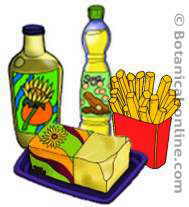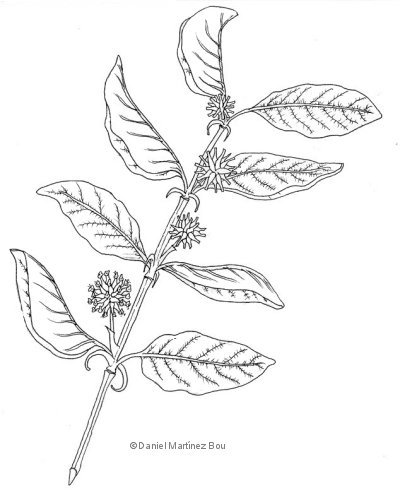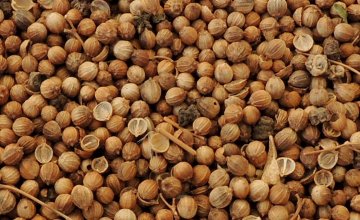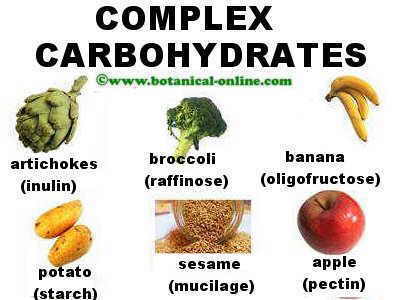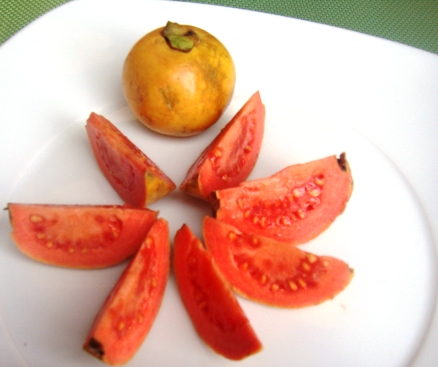Contents [show]
When is it recommended to take Omega 3 supplements
CONTRAINDICATIONS OF FOODS WITH OMEGA FATS
Is eating much omega 3 and 6 contraindicated?
Eating foods high in omega-3 is not dangerous, because, in case of excess, the body would keep it as body fat. Omega 3 and omega 6 fats are found in many natural foods and vegetable oils.
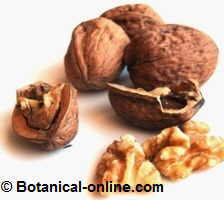 Photo of walnuts, rich in omega 3 and omega 6 |
Can you eat too much omega in the diet?
It is very difficult to make a diet with excess omega-3 through rich foods, which include walnuts, flaxseed meal, ground chia seeds and hemp seeds, mainly.
We can eat too much omega 3, when much flaxseed oil, walnut oil, or other seed oils are usually consumed.
In these cases, besides increasing body fat, what happens is a disproportionate increase in polyunsaturated fatty acids in the body, which are the omega 3 and omega 6, found in all vegetable oils.
What is is really healthy is to eat a balanced amount of oil in the diet, and preferably using oils rich in monounsaturated fats, such as virgin olive oil or olive oil substitutes.
Problems of polyunsaturated fatty acids (omega 3 and omega 6)
Eating much vegetable oil oxidizes the body and increases dietary requirements of antioxidants (fried, chips, snacks, hooks, croquettes, pizzas, etc.). Therefore, once again it is recommended moderation in the diet, in this case with the use of oils, which in suitable doses are very healthy.
According to their chemical characteristics, polyunsaturated fatty acids are intestables molecules, that is to say, they oxidize or deteriorate easily. The oxidation of polyunsaturated fats increases the formation of free radicals in the body. This oxidation is the same reaction as shown in an oil when rancid.
When there are more free radicals that antioxidants in the body, it is produced what is known as oxidative stress, a deterioration of cells which increases the risk of cardiovascular diseases and arteriosclerosis.
A diet rich in antioxidants and fat balance, help prevent this imbalance and its consequences.
The most preferred vegetable oil
Unrefined oils obtained from first cold pressing are those that best preserve their fats and all their antioxidants.
To avoid the increase of free radicals in the body we recommend using extra virgin olive oil because it contains monounsaturated fat (omega 9), it contains many antioxidants, and is chemically more stable than polyunsaturated fat.
Seeds and nuts can be consumed, but much better as food than as oil.
When an excess of refined oils and seeds is eaten?
Foods rich in polyunsaturated fatty acids: seed oil, refined, fried and margarines |
The negative effects occur only when oil is taken in excessive amounts or poor quality. Refined oils are poor in vitamin E (antioxidant), so oxidize before the body.
Oils rich in polyunsaturated fatty acids are:
– Corn oil
– Walnut oil
– Soy oil
– Margarine with these oils
– Fritos, snacks, pizza and industrial products made with previous
Problems with eating too many seed oils
Drinking plenty amount of any of the oils described above increases oxidation in the body, especially if they are refined (They contain less antioxidants and preserve themselves worse).
Normally this excess is caused by eating too many fried foods and industrial snacks (chips, bread sticks, crackers, etc.). If these foods are taken, it is recommended to accompany them with foods rich in antioxidants.
For example, sunflower oil fried foods should be combined with a high intake of antioxidants, such as a salad, fruit, tomatoes, etc. (Vitamin C, flavonoids, beta carotene, quercetin and other antioxidant components are mostly found in raw vegetables).
Is eating too much oily fish bad?
Bluefish is also rich in omega 3 (2-6% fat), but not as much as oil (100% fat) or seeds and nuts (40-60%).
As all components of the diet, excesses are not recommended. Eating a lot of fish, as could be the case in protein diets, can lead to other problems, usually related to increased uric acid, rather than its content in omega 3, EPA and DHA.
To prevent this from happening, if you take fish, it is recommended in rations of 150 grams and, as always, animal protein must be accompanied by abundant plant foods.
Eating a lot large oily fish (tuna, salmon, etc.) is not recommended because of the high mercury content presented by these animals. People with hypertension are not recommended to take canned fish (in oil or not), because they contain a lot of salt. Besides, oil fish canning contains much omega-6 (from oil), which does not allow assimilate omega 3 fish.
Like oils, fish must be cooked at a low temperature so that fat is not damaged. Roasted or fried fish loses many interesting nutrients (vitamin loss, glutamine, omega fats deterioration…).
General recommendations when taking oils, nuts and seeds
– Olive oil is best suited for seasoning and cooking.
– In any diet, oil consumption should be accompanied by foods rich in antioxidants (salads, carrots, vegetables, fruits, etc.)
– Taking sunflower oil it is not bad (or other oils other than olive oil). They are harmful only when consumed in excess (fried snacks, fried nuts, etc.) of poor quality ones (refined). There is non-refined sunflower oil, which is rich in vitamin E.
– Taking foods rich in omega-3 daily, such as: walnuts, ground flax seeds or ground chia seeds. Seeds and nuts contribute with a lot of omega 6. Both types of omega must be combined to get a balance (more information)
– Fried foods should be eaten occasionally. In addition to the negative effects of taking too much polyunsaturated fat, cooking temperature deteriorates the properties of the oil, so that even frying in olive oil, is not as healthy as the crude oil. The best oil for frying is olive oil, high oleic sunflower oil or coconut oil because they best resist temperature without deterioration.
![]() More information on Omega essential acids.
More information on Omega essential acids.

